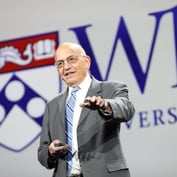One evening, Jason Carroll came home from work and told his wife that he wanted to work for a bank — preferably on the East Coast, where they both were raised and where they wished to raise their children — that lent exclusively to financial advisory businesses.
At that time, Carroll was working for Charles Schwab in Denver as a program manager for investment advisory lending products and platforms. He did not know whether a bank dedicated to investment advisory lending even existed, nor could he have imagined that very soon after expressing his career wish to his wife, Wilmington, North Carolina-based Live Oak bank would come knocking at his door.
Since 2012, Carroll has served as managing director and senior officer for investment advisory lending at Live Oak. Today, he oversees a portfolio of around $300 million loans made to independent advisors, 65% of which, he said, have funded succession planning deals.
“Whether it be strategic acquisition or a retiring advisor who wants to either fully exit their business or develop an exit plan that should be capitalized at a particular point, we do it,” he said.
Before Live Oak’s entry into the financial advisory space, the average independent advisor had no recourse to a national bank presence with a dedicated lending platform, Carroll said. It’s no secret, too, that succession planning is the industry’s bête noire, and that despite the number of owner-advisors across the nation who are fast approaching retirement age or are already there, the rate of succession planning remains alarmingly low. Studies also show that few advisors even have a written plan in place for what they wish to do with their businesses when they retire.
A large part of the problem has been the lack of funding for succession planning. The typical 30-70-5 structure — with a buyer putting down 30% in cash and a seller carrying 70% of the value of the deal over five years, has been the prevailing model — but it’s an onerous proposition for many advisors, Carroll said, both sellers and buyers of firms.
“Our addition to the market has resulted in a paradigm shift: Now, an advisor can borrow the capital that they need to execute a transaction at higher advance rates versus how transactions were done in the past,” he said.








 May 11, 2016 at 08:00 PM
May 11, 2016 at 08:00 PM










